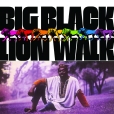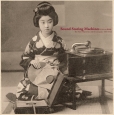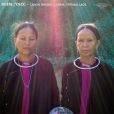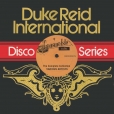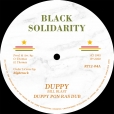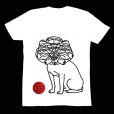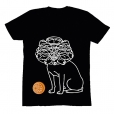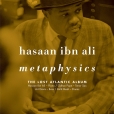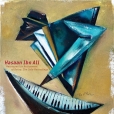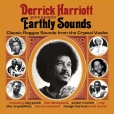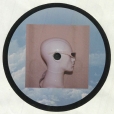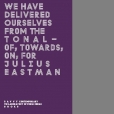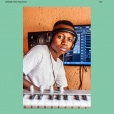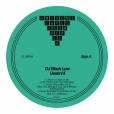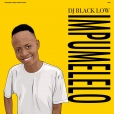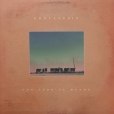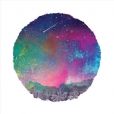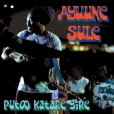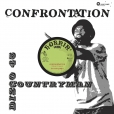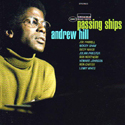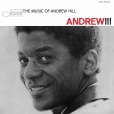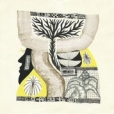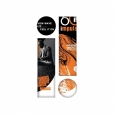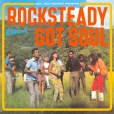Your basket is empty

A miraculous bouquet of gagaku, shakuhachi, shamisen, storytelling, folksong and more, including the first commercial recordings in Asia.
Rawly ethereal, other-worldly singing by members of hill tribes in China, Vietnam, and Laos.
Munificent survey of Errol Brown’s late-seventies, early-eighties 12” remixes — and Sly & Robbie do-overs — of the glories of the Treasure Isle label, with Sonia Pottinger now at the helm.
Bedazzled nipper with red Honest Jons ball.
Bedazzled nipper with orange Honest Jons ball.
The story goes that Giant Steps is indebted to the harmonic ideas of Hasaan, with whom Coltrane practised intensively in the early fifties; also Trane’s so-called ‘sheets of sound’. Certainly the pianist was already hallowed on the Philadelphia jazz scene by the time of the 1964 Atlantic LP entitled The Max Roach Featuring The Legendary Hasaan.
The recordings presented here are from the follow-up session, the next year, with Odean Pope, Art Davis and Kalil Madi. Atlantic shelved them when Hasaan was jailed for narcotics possession straight afterwards; and till recently they were thought lost, despite the keen interest of Rahsaan Roland Kirk, amongst others.
Hasaan plays with a quietly raging restlessness, deeply passionate and rawly personal, climbing the walls of the influences of Monk and Elmo Hope, and churning over the full range of swing and bop traditions, with sharp turns in all directions. You can hear him breaking through the ‘modern sounds’, as Benny Golson put it, ‘into something very esoteric. I guess you could say his brakes didn’t work. He was quite a character.’ ‘Almost avant-garde,’ for Philly Joe Jones, ‘but correct’.
Saxophonist Odean Pope played for two decades with Max Roach. He was a member of Catalyst; he started his own Saxophone Choir. At 26, on his recording debut, he’s magnificent here. Art Davis is the bass player on stone classics like Africa/Brass and Olé, Ready For Freddie and Inception, Max Roach’s Deeds, Not Words and Pharoah Sanders’ Rejoice. In the previous decade in New York, Kalil Madi had drummed for the likes of Billie Holiday, Jackie Paris and Mongo Santamaria; later he worked with Gene Harris’ Three Sounds and Charles Gayle.
Elegantly presented, expertly restored, this is wonderful music, a genuine jazz holy grail.
It’s a must, hotly recommended.
We Have Delivered Ourselves From the Tonal – Of, Towards, On, For Julius Eastman
Bonaventure Soh Bejeng Ndikung & others
Savvy Contemporary
264 pages of essays, librettos, lyrics, memories, nuff photos, scores, personal anecdotes by musicians, visual artists, researchers and archivists; including contributions by Mary Jane Leach, George Lewis and Kodwo Eshun, besides Eastman in his own words.
Bracingly hostile towards settled, sanctimonious thinking about the composer and musician — Hans Werner Henze’s favourite bass player, featured on Arthur Russel’s Go Bang — especially any squaring off his sexuality and skin colour in relation to canonical minimalism, this is a punchy, immersive, diverse and thought-provoking homage.
Stark, moody, percussive amapiano.
Driving, rawly soulful kologo music from northern Ghana, propelled by double-stringed lute.
African Head Charge front man Bonjo Iyabinghi Noah guests.
Putoo Katare Yire, Wickedness Has No Home.
Terrific.
Dazzling music from 1969, way ahead of its time, by a nonet with Woody Shaw and Dizzy Reece on trumpets, Joe Farrell on reeds, woodwinds, and English horn, Bob Northern on French horn, Howard Johnson on tuba and bass clarinet, Ron Carter on bass. Fresh from Bitches Brew, Lenny White plays drums at just his second recording session; trombonist Julian Priester is a few months away from Mwandishi.
Sideways establishes Hill’s signature twist on Monk and Bud Powell, with its angular, sinewy restlessness, and Caribbean tang. The horns are crossly careering. The evocative title cut has classical, cinematic manners, but in the service of East of the River Nile mysticism. Plantation Bag is magnificent, delirious, epic funk, with Lenny White channelling Clyde Stubblefied, and Ron Carter dug in deep. Noon Tide tears way further eastwards, in the same urgent cohort as classics like Yusef Lateef’s Chang, Chang, Chang and Pete La Roca’s Dancing Girls. Cascade is precisely skittering and eruptive, with wonderful trumpet-playing. Yesterday’s Tomorrow is playful, both jaunty and rueful, undecided, to close.
The arrangements throughout are imperious; the playing is uniformly superb. “We had rehearsal time and a lot of studio time. Some of those songs, we did take 45 or take 50. We played them over and over and over, till we got a complete take just right.’‘
Knockout.
Absorbing new music from Ecuador, named after a street in the historic centre of Quito.
A poignant, trippy, astute, bass-heavy blend of a range of styles including juke, reggaeton and UK garage, flavoured by their to and fro between Latin America and Europe.
Quixosis’ grandad was a key, controversial player in the explosion of musica nacional in the city in the early sixties, and the mix is studded with evocative samples of Italian chanson and South American folk from his record collection, in a kind of reverie about national and self identity, Beat Konducted at the centre of the world.
Check it out.
